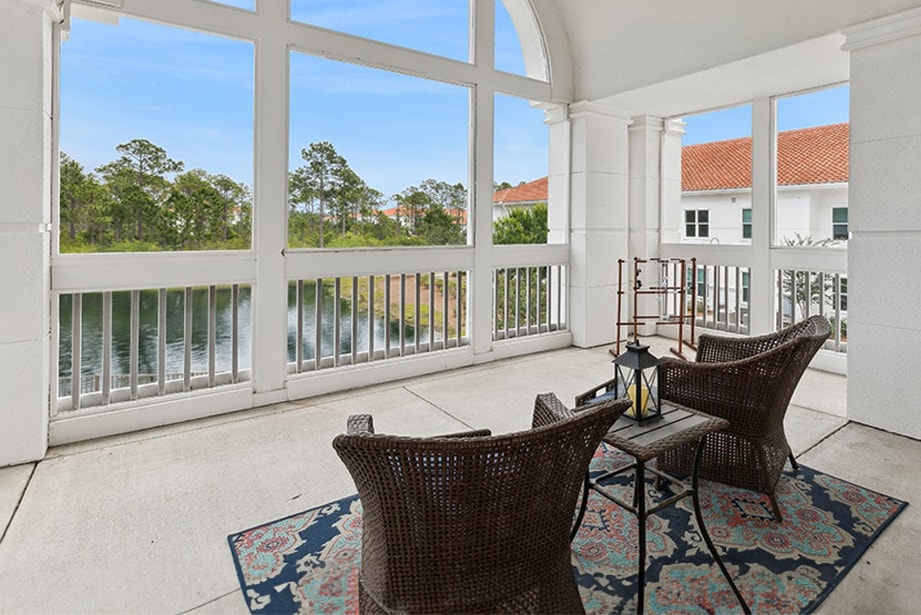Family members and adult children often face the responsibility of deciding care options for loved ones. Care options can include assisted living and memory care.
Assisted living supports older adults with daily tasks while encouraging independence, and memory care provides specialized care for older adults with cognitive impairments.
While the transition to senior living can bring a mix of emotions and questions, by understanding the difference between these two forms of care, you can make informed decisions that better align with the needs of your loved one.
What Is Assisted Living?
Assisted living is designed for older adults who value their independence but require some assistance with daily tasks. These communities offer a blend of housing, health care, and personal support.
Assisted living typically has studio, one, or two-bedroom suites with modern kitchenettes and a full bath. Older adults in assisted living also have access to community activities, social opportunities, and the following personal care activities:
- Bathing
- Dressing
- Medication management
- Getting in and out of bed
- Moving about
- Assistance with meals
Additionally, older adults in assisted living can enjoy amenities like housekeeping, transportation, dining, and recreational activities. This array of services allows older adults to enjoy a fulfilling lifestyle with the necessary support.
One of the main benefits of assisted living is the balance it offers between independence and assistance. Older adults can continue to lead active lives with the assurance that help is available when needed. The arrangement is particularly beneficial for those who can no longer safely manage household chores and maintenance but don’t need the intensive medical care provided in nursing homes.
What Is Memory Care?
Memory care is a specialized form of care tailored to older adults with Alzheimer’s disease or other types of dementia. Memory care focuses on providing a secure, structured environment that minimizes stress and provides stability and security for those with memory impairments.
Older adults in memory care benefit from professional staff who deliver personalized care plans. These plans often include:
- Nutritional support
- Medication management
- Cognitive therapies
- Physical fitness
- Educational experiences
- Memory-enhancement activities
- Programs to maintain cognitive function
Memory care apartments typically feature a studio and two-bedroom suites with a full bath. The living arrangements in memory care are designed for safety and to prevent wandering, with secured areas and layouts that promote easy navigation. Amenities and services in memory care include:
- 24-hour nursing and care staff
- Housekeeping
- Laundry
- Utilities including Wi-Fi
- Maintenance
Key Differences Between Assisted Living & Memory Care
While assisted living and memory care provide valuable support, they serve different needs. Assisted living offers assistance with daily activities while maintaining independence, whereas memory care provides specialized support for cognitive impairments. This distinction is crucial when determining the most suitable care option for your loved one.
When considering scenarios, imagine a loved one who enjoys socializing but needs help with medication or meal preparation. Assisted living would likely be a suitable choice, providing the necessary support while allowing for a rich social life. Conversely, for loved ones with memory impairment who may struggle with orientation, memory care would offer the security and specialized attention required.
Making a Well-Informed Decision
Understanding the differences in care options helps in making a well-informed decision. However, before making a decision, it’s important to evaluate not only the current needs of your loved one but also anticipate future changes that may require a different level of care. In doing so, you can select the environment that supports overall health and well-being.
Consulting with healthcare professionals can provide additional insights and guidance. Visiting potential communities is also an essential step in the decision-making process. Observe the environment, speak with staff, and engage with current residents and their families to gain a clear perspective on the community.
Transitioning to Assisted Living or Memory Care
Transitioning to a new living environment can be daunting. But, with proper planning, you can prepare a loved one for a smooth transition. Communicate openly with your loved one about the changes and involve them in decision-making as much as possible.
Providing reassurance and understanding their concerns is key to easing anxiety and creating a positive experience. Your loved one can consider a short-term stay at a community to experience everything it offers, making for an easier transition.
Navigating the Right Care for a Loved One
Exploring the differences between assisted living and memory care is vital for caregivers and family members making decisions about their loved one’s care. By recognizing their unique needs and preferences and aligning them with the appropriate care environment, you can make sure they receive the right support.
However, if you’re still unsure about the level of care a loved one needs, contact Somerby Santa Rosa Beach. We can help guide you in choosing the right senior care option for them with a nurturing environment that meets their needs and provides peace of mind for your family.









